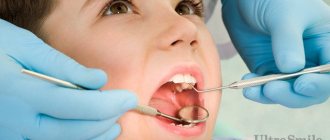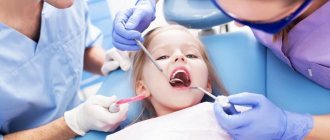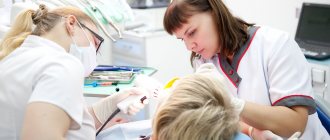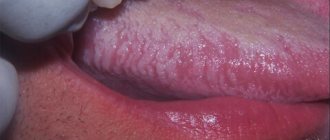Dental clinic "Belinka" is a commercial medical company with many years of experience in providing a full range of dental medical services. Our dental clinics are equipped with modern equipment; highly qualified doctors use advanced methods for treating diseases.
Since January 1, 2014, qualified medical care from the Belinka dental clinic has become available to residents of Nizhny Novgorod and the region within the framework of the Territorial Compulsory Medical Insurance (CHI) program for dental care.
Any citizen of the Russian Federation (having a compulsory medical insurance policy) has the right to free medical care within the framework of the Program of State Guarantees for the provision of free medical care to the population of the Nizhny Novgorod region.
The patient has the right to choose a medical organization participating in the implementation of the territorial compulsory health insurance (CHI) program. The patient can exercise this right by writing an application for attachment to a medical organization.
Patients who have a valid compulsory medical insurance policy in their hands can receive the following types of medical care at the Belinka dental clinic:
- Dentistry therapeutic
- Surgical dentistry
To receive dental care under the compulsory medical insurance policy at the Belinka dental clinic, you must make an appointment, fill out an application for attachment, and also provide the following documents:
- Passport; Compulsory health insurance policy; Insurance certificate of state pension insurance.
List of medical insurance organizations with which Belinka LLC has entered into agreements for the provision and payment of medical care under compulsory health insurance:
- LLC "Capital" in the Nizhny Novgorod region
- Nizhny Novgorod branch of Insurance Medical LLC
- Branch of Insurance LLC in Nizhny Novgorod
- Nizhny Novgorod branch of JSC "Insurance"
Information about pain management services
Criteria for accessibility and quality of medical care
Requirements for the territorial program in terms of determining the procedure, conditions for the provision of medical care, criteria for the availability and quality of medical care
Rights and responsibilities of citizens in the field of health protection
Program of state guarantees of free provision of medical care to the population of the Nizhny Novgorod region for 2021 and the planning period of 2022 and 2023
Treatment under compulsory medical insurance
First, let's answer the question of what the compulsory medical insurance system is.
The abbreviation stands for compulsory health insurance. Behind the boring wording lies the right of Nizhny Novgorod residents to FREE provision of medical services even in commercial clinics in case of illness and in the presence of an agreement with a medical insurance organization. Residents of the Nizhny Novgorod region can receive emergency care, examination and diagnosis of the disease, outpatient and inpatient treatment, diagnostics and treatment using expensive innovative drugs and methods in both public and private clinics under the compulsory medical insurance policy.
Patients who are entitled to preferential prosthetics
A quota for dental prosthetics is an opportunity to receive free treatment within the framework of various contracts and agreements designated by the state. Let's list who is entitled to the benefit:
- veterans: labor, war,
- adults and children with disabilities,
- patients who have retired due to age and are unemployed,
- low-income citizens: the state includes among them those whose income is several times lower than the subsistence level,
- liquidators of the Chernobyl accident.
It is worth understanding that in different regions of Russia the list of those who can qualify for free prosthetics differs: it can be expanded or, conversely, reduced. For example, in some regions, mothers with many children (when there are more than 5 children in the family), wives of WWII veterans, family members of disabled children, honorary donors and pensioners of the Ministry of Internal Affairs are entitled to a quota. Therefore, it is better to check the list of persons with the social security or local government authorities at your immediate place of residence and stay.
Compulsory medical insurance policy
To use medical services under the compulsory health insurance program, Nizhny Novgorod residents must have a compulsory medical insurance policy. The document gives the right to free medical care throughout the Russian Federation. You can apply for a policy at your chosen insurance company by submitting documents in person or through your representative. A complete list of insurance companies is listed on the website of the Territorial Compulsory Health Insurance Fund.
Refused? Call the insurer
If the dentist attempts obvious extortion and ignores your arguments, dial the number of the insurance company that issued the policy. The insurance agent in such situations is your consultant and lawyer. His duty is to protect the patient's right to receive quality medical care. It happens that a doctor uses a visit from a free patient as an excuse to impose additional paid services. If in any doubt, call the phone number indicated on the policy. It is very unprofitable for medical institutions to come under the scrutiny of insurance companies. This is fraught with serious inspections and large fines.
Choosing a clinic operating under compulsory medical insurance
For the treatment and diagnosis of diseases, you can choose any clinic that participates in the compulsory medical insurance program. This can be done no more than once a calendar year. Moreover, Nizhny Novgorod residents can change medical institutions at any time of the year by writing an application for choosing a medical organization.
You can only be assigned to one clinic. To do this, the patient must come to the medical institution and write a statement.
A completed form will help the clinic receive a certain amount of funding to provide medical care of appropriate quality, including the prevention of various diseases.
While everything is clear with state-owned hospitals and clinics, few people know that treatment under the compulsory medical insurance program can also be done in private medical centers.
Will everyone be treated for free?
The holder of a compulsory medical insurance policy will be treated for caries, pulpitis, periodontal disease, a diseased tooth will be removed, a filling will be placed, purulent inflammation will be eliminated, and physiotherapeutic procedures will be performed. Anesthesia and x-rays for medical reasons will also be provided free of charge. Every six months you can come to the clinic for a preventive examination and have your teeth cleaned of tartar - mechanically, using a special bur (ultrasonic cleaning is performed for money). Children are provided with orthodontic treatment. Territorial programs of some regions may include additional services. Therefore, do not rush to take out your wallet - check first to see if your problem is being solved for free.
Prosthetics, implantation, teeth whitening, treatment with laser technologies and some other procedures are not included in the compulsory medical insurance program. The exception is the preferential category of patients, consisting of combatants, victims of the Chernobyl nuclear power plant accident, and World War II veterans. Prosthetics for them are paid for from the state budget.
Compulsory medical insurance services
In private centers, you can receive primary health care from a local physician and be examined by a surgeon, neurologist, endocrinologist, otolaryngologist, gastroenterologist, oncologist and other specialists. Nizhny Novgorod residents can also undergo a temporary disability examination at these clinics.
Under the compulsory medical insurance policy, you can treat your teeth for free, get help from a dentist-therapist, a surgeon, a pediatric dentist, a radiologist and an orthodontist (however, the latter will not be able to install braces for free: this service is not provided for by the compulsory medical insurance program, in this case we are only talking about a consultation, correcting the bite and installing a plate to straighten teeth), check your vision and get advice from an ophthalmologist, gynecologist, urologist and dermatovenerologist, oncologist, nephrologist, cardiologist,
Also, under the compulsory medical insurance program in the Nizhny Novgorod region, you can undergo the procedure of in vitro fertilization. To get on the list for free IVF, women must undergo a specialized examination and tests. For holders of a compulsory medical insurance policy, all procedures are provided free of charge. Next, patients are given a referral to a special commission, which will offer the patient a clinic for the procedure.
In addition, outpatient hemodialysis and hemodiafiltration are also available under the compulsory medical insurance policy. Patients are referred for procedures by the regional dialysis commission of the Ministry of Health of the Nizhny Novgorod region.
Under the compulsory medical insurance program in our region, you can receive high-tech medical care and undergo a coronary angiography procedure - research on coronary heart disease. The indications for the procedure are determined by the attending physician, who also prescribes all the necessary tests. Compulsory medical insurance also provides rehabilitation services for a patient who has undergone heart surgery and acute myocardial infarction.
Under the compulsory medical insurance policy, you can also undergo magnetic resonance imaging. To get a free MRI, you need to visit a special commission at the clinic, get a referral and sign up for an examination with documents.
Thus, now Nizhny Novgorod residents have an alternative to paid treatment - these are services under the compulsory medical insurance policy. But, at the same time, sometimes patients will have to wait to undergo the cherished procedures. If you can almost always get to such specialists as a therapist, surgeon and endocrinologist immediately and without a queue, then in some cases Nizhny Novgorod residents will have to be patient. A correspondent for the news agency “In the City of N” called a number of dental clinics, and in several of them it turned out that queues for free dental treatment were a month in advance.
We'll have to wait for an MRI. The waiting list for magnetic resonance imaging is about a month.
Schedule of medical workers
Adyarova Irina Aleksandrovna Dentist-therapist
Even: 14.00 – 20.00
Odd numbers: 9.00 – 14.00
Kalinina Marina Vyacheslavovna C tomatologist-therapist
Even: 9.00 – 14.00
Odd numbers: 14.00 – 20.00
Elena Aleksandrovna Terentyeva, dental surgeon
Even: 14.00 – 20.00
Odd numbers: 9.00 – 14.00
Patients are received at the following addresses:
- Nizhny Novgorod, st. Belinsky, 9/1 Appointments can be made by calling (831) 216-16-37
- Nizhny Novgorod, st. Plotnikova, 3 Appointments can be made by phone
Operating mode:
Mon.-Fri.: 9.00–20.00
Sat: closed
Sun: closed
Refusal to receive compulsory medical insurance services
If suddenly for some reason you are denied services under the compulsory health insurance program, then in this case there is an information and analytical database of citizens’ appeals. It is conducted jointly by the TFOMS of the Nizhny Novgorod region and the regional Ministry of Health, so every Nizhny Novgorod resident can complain about the quality of compulsory health insurance services.
In order to protect the rights of citizens in the compulsory medical insurance system, the territorial fund operates a 24-hour contact center, where Nizhny Novgorod residents can receive competent advice on issues related to medical care at the expense of compulsory medical insurance funds.
Hotline number
In addition, each medical insurance organization also operates hotlines, the number of which can be found on the website of the territorial compulsory medical insurance fund: www.tfoms.nnov.ru.
Who is eligible to receive
A quota for free dental prosthetics is primarily provided to heroes, disabled people and war veterans, as well as children with disabilities - these patients receive the service ahead of others.
However, patients with oncology or those who have recently undergone a complex operation on the gastrointestinal tract, as well as people faced with the problem of missing teeth due to serious injuries to the maxillofacial apparatus, can also be served out of turn. Naturally, such patients must confirm their status with relevant documents, extracts and doctor’s prescriptions.
Old-age pensioners, people with disabilities and labor veterans can receive benefits on a first-come, first-served basis.
Free prosthetics: what you can count on under the quota
If there is a quota for dental prosthetics, then, first of all, you can count on an examination before treatment. It will include not only a visual examination and history taking, but also an OPTG (orthopantomogram) - these are two-dimensional photographs of both jaws, which will allow us to judge the hidden processes occurring in the jaw. They are much less informative than three-dimensional computed tomography, but unfortunately, one cannot expect anything more from free medicine these days.
As for the prosthetics itself, patients have little choice according to the quota. For them, only removable structures made of acrylic or nylon, or permanent crowns made of metal or metal-plastic can be created - these materials are cheap and are not suitable for all people.
Constructions made of plastic and nylon are short-lived, because... materials absorb dyes and pigments and quickly become unusable. In addition, they are low-functional, it is almost impossible to fully restore chewing function in them, and the patient has to limit himself in nutrition, for example, refuse to eat hard and favorite foods, giving preference to the softest ones.
On a note! Independent researchers have found that there are many times more cases of poor-quality treatment and prosthetics in patients who received free treatment than in those who received paid services.
Metal and acrylic can cause an allergic reaction. However, if the patient proves and documents that these materials are really not suitable for him due to his health, then the clinic may offer to install prostheses made from other materials. Will I then need to pay anything? Yes, you will have to pay the difference in price.
What about service? If your installed prostheses are damaged, then, by decision of the medical commission, they can be replaced with new ones or repaired within a year from the date of application. Moreover, if the doctor or clinic is to blame for the breakdown of the structure (for example, due to poor quality manufacturing or installation), then replacement or repair work will be carried out out of turn.
Prices
Anesthesia
| Name of medical service | Service cost |
| Anesthesia (pain relief using one carpule) | 200 rub. |
| Application anesthesia (aerosol, gel) | 100 rub. |
Removal of a tooth
| Name of medical service | Service cost |
| Removing a baby tooth | 500 rub. |
| Tooth wall removal | 350 rub. |
| Removal of a mobile tooth | from 500 rub. |
| Removal of permanent incisor | 1,000 rub. |
| Removal of permanent canine, premolar | 1,300 rub. |
| Permanent molar removal | 1,600 rub. |
| Removal of the third molar ("wisdom tooth") | RUB 1,900 |
| Difficult removal (with separation of roots, with hypercementosis) | RUB 2,600 |
| Removal of semi-impacted, dystopic tooth | from 2,300 rub. |
| Removal of an impacted tooth of 1st degree of complexity (covered with mucous) | from 3,500 rub. |
| Removal of an impacted tooth of 2nd degree of complexity (lying in bone tissue) | from 4,000 rub. |
Stitching
| Name of medical service | Service cost |
| Applying 1 suture using domestically produced material | 200 rub. |
| Applying 1 suture with imported material | 300 rub. |
| Removing stitches | 300 rub. |
Wisdom tooth hurts: what to do?
If your wisdom tooth hurts, you shouldn’t panic – modern dentists can handle this problem very well. It will be possible to influence the situation using both therapeutic and surgical techniques. The decision will be up to the specialist. He will weigh the cause of the development of pathological symptoms, the location of the tooth, its effect on neighboring ones, as well as other related factors. X-ray examination will be of great help in making the right decision.
Indications and symptoms for wisdom tooth removal
The indications for removing figure eights are broader than for other teeth. Access to a wisdom tooth is often complicated by its awkward position, which prevents high-quality therapeutic treatment. Therefore, the decision to undergo surgical intervention is often made even if there are only signs of caries, or the symptoms are manifested by sensitivity when pressed. (In the case of any other location, pain when pressing would be a reason to carry out exclusively therapeutic measures, tooth filling).
However, the decision to remove a wisdom tooth must be balanced. It is quite possible that after treatment of caries and installation of fillings, the figure eights will continue to exist. Their removal is necessary only in cases where without surgical intervention it will not be possible to ensure the safety of the remaining teeth or the health of the entire oral cavity. The most common indications for surgical intervention:
- tooth eruption is accompanied by a pronounced inflammatory process, when the general condition worsens, pain radiates to the jaw, and numbness of the face is noted;
- incorrect position of the tooth when it injures neighboring teeth or soft tissues;
- the development of a purulent process in the oral cavity due to damage to the figure eight, the risk of developing periostitis, odontogenic cysts.
Orthodontists often insist on the need to remove wisdom teeth when planning the installation of braces. Sometimes this is the only way to ensure proper movement of other molars.
Specifics of removing figure eights on the upper and lower jaws
Removal of figure eights from above and below can take place according to different scenarios due to the anatomical features of the jaws and teeth. The lower jaw is smaller, but its bone tissue is denser. This predisposes the roots of figure eights to be longer and more curved. Such factors will significantly complicate the procedure. In this situation, the removal of wisdom teeth using ultrasound is most relevant.
Application of anesthesia
The use of anesthesia in dentistry allows us to guarantee that various procedures, including tooth extraction, are carried out without pain. The patients' fears are completely unfounded. Moreover, if the patient cannot psychologically adjust to the operation, medication methods will come to the rescue. Under sedation, tooth extraction will be as comfortable as in a dream. The operation can also be performed under general anesthesia. However, to use this technique, there must be special indications, as well as an appropriately equipped operating room.
Possible complications after surgery
Like any surgical intervention, the removal of a wisdom tooth will require a recovery period, during which some swelling and pain in the wound area will persist. How much a wisdom tooth hurts after removal depends on the complexity of the intervention and the individual characteristics of the body. In the absence of complications and proper care, these signs regress within a few days.
However, incorrect actions of patients can aggravate the recovery processes. Thus, bleeding that occurs several hours after surgery is usually provoked by active rinsing.
As a result of insufficient professional actions of the doctor, the following complications most often occur:
- damage to adjacent teeth, the maxillary sinus, if the removal was carried out in the upper jaw;
- disruption of innervation.
Recommendations after wisdom tooth removal
Removing a wisdom tooth is often difficult, so after the operation is completed, the patient will not leave the clinic until he receives clear instructions from the doctor about further tactics. They relate to the organization of care, nutrition issues, various hygienic and therapeutic procedures, and medications that can be used to quickly relieve pain at home.
Despite the general principles, the doctor will adjust the prescriptions taking into account the nature of the intervention performed and individual characteristics. Providing a comfortable feeling after surgery is also within his competence. To do this, the surgeon will prescribe medications to alleviate the postoperative condition and suggest how to relieve pain.










